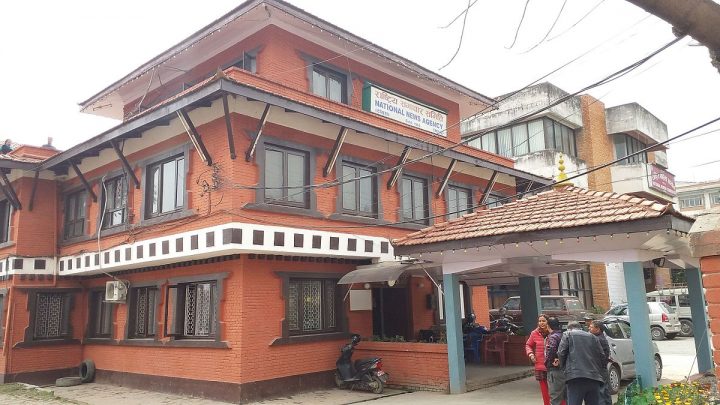Indian Army chief Naravane’s imminent Nepal visit and military diplomacy

Kathmandu - Experts argued that the deadlock surfaced in the Nepal-India dialogue could be put to an end through the use of military diplomacy based on the past positive outcomes. Of late Nepal and India have seen some souring relations in regard to the issue of Kalapani, Limpiyadhura and Lipulek.
The territorial dispute flared up when India encroached the Nepal’s land and updated its map and ignored to settle the dispute through dialogue and talks. In this context, Indian Army chief general Manoj Mukund Naravane is embarking his visit to Nepal on coming Wednesday.
The visit is expected to contribute to somehow address the dispute and harmonize the relations between Nepal and India. In course of his three-day Nepal visit, the Indian Army chief is scheduled to meet with President Bidya Devi Bhandari, Prime Minister KP Sharma Oli and his counterpart Nepal Army chief Purna Chandra Thapa. It may be noted that the military diplomacy was effective in resolving the uneasy situation between Nepal-India following the enforcement of unsolicited sanction.
The Nepal government had adopted military diplomacy to safe land the circumstances resulted in after the Indian government enforced undeclared blockade by lending support to the issue raised and struggle waged by Madhes-based political parties expressing dissatisfaction on some of the provisions of the newly-promulgated constitution of Nepal. India had lifted the blockade slapped at Birgunj transit entry point during the visit of Nepal Army chief Rajendra Kshetri to India visit.
However, there has been century-old religious, cultural, social and brotherhood between the two countries at citizen level. “We had discharged the role to resolve the problem as per the directive of the government. The credit for this should go to the institution and state”, said ex-major general of the Nepal Army, Himalaya Thapa. Military diplomacy is a part of the foreign policy, he said, adding “Nepal’s military diplomacy with our northern and southern neighbouring countries and other influential countries is very good and reliable”.
Thapa further said, “We should seriously realize the geographical realities besides Nepal’s independence, sovereignty, territorial integrity and national unity”. Though the Nepal government, political parties and their lawmakers have univocally passed a proposal calling for the return of encroached Nepali land mainly Lipulek, Limpiyadhura and Kalapani region, India has not initiated any action to return the territories to Nepal. President of the House of Representatives, International Relations Committee, Pabitra Niraula said the Indian Army chief visit would believably open avenue for resolving the longstanding border dispute between the two countries.
“I expect the visit would substantially address the border issue between the two countries so that it would end the situation when Nepali people even do not think about the border”. Another ex-major general Jagadish Chandra Pokharel said, “Nepal had shown its tradition of good will even when India made a disputed expression on the border. We did not budge from our stand”. Nevertheless, military diplomacy is not a complete phenomenon but a part of defense and foreign policy.
There is a need to develop primary strategy and necessary preparedness towards removing deadlock in dialogue seen at leadership level of both the countries, Pokharel said, adding, “The Army Chief visit is a point of departure and not the end for addressing the existing problem”. The experts also underscored the urgency to demonstrate a balanced and close relations as per the foreign policy of the country and address the concerns of neighbouring India based on the interests of Nepal.
Nepal Army Spokesperson Santosh Ballav Poudel shared that all necessary preparations including security has been done meticulously prior to the visit and the discussion with Indian Army Chief Naravane would focus on different dimensions of bilateral military relations and cooperation. Though Nepal Army said the visit of general Naravane is a continuity of a tradition of exchanging honorary titles between chiefs of army in Nepal and India, it is also expected to have a breakthrough in removing deadlock on bilateral dialogue and propel other dimensions of Nepal-India relations.









Leave Comment